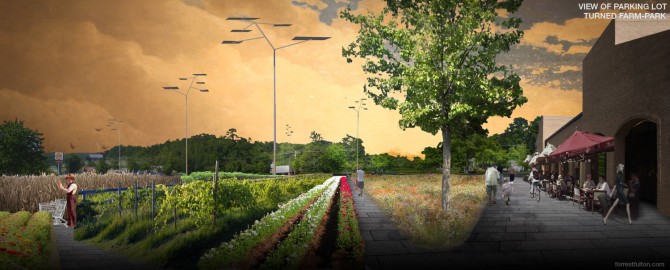 America’s farmland has long been under siege by suburban development. This is nothing new. What is new is that a cease-fire has been called in most parts of the nation. And a conversation is developing about how to move into this new window of opportunity in a manner that not only restores the balance between urban demand and farm supply, but also helps to reenergize our failing economy heavily dependent on the construction industry.
America’s farmland has long been under siege by suburban development. This is nothing new. What is new is that a cease-fire has been called in most parts of the nation. And a conversation is developing about how to move into this new window of opportunity in a manner that not only restores the balance between urban demand and farm supply, but also helps to reenergize our failing economy heavily dependent on the construction industry.
This summer, Reburbia, a suburban design competition, was held by Inhabitat and Dwell Magazine. The competition set out to gather creative and imaginative ideas on how to go about re-visioning the American suburban sprawl that will almost certainly become our suburban wasteland without intervention. Several of the ideas were great, but one in particular caught my eye.
 Spooky. I was just talking about this a few months again with a friend. What if, we said, you could go into a store like say… Walmart, and choose between different products by a uniform “green” rating system? Wouldn’t that be awesome? I mean, anything from a stereo to a box of Pop Tarts would give you a set of simple ratings that would let you know within instants about the natural resources consumed in the creation and stocking of the item.
Spooky. I was just talking about this a few months again with a friend. What if, we said, you could go into a store like say… Walmart, and choose between different products by a uniform “green” rating system? Wouldn’t that be awesome? I mean, anything from a stereo to a box of Pop Tarts would give you a set of simple ratings that would let you know within instants about the natural resources consumed in the creation and stocking of the item. What should our relationship with the dirt under our feet be? Physically, emotionally, spiritually and legally? Legally? Yeah, why not? That is exactly what the country of Ecuador has asked and answered in a
What should our relationship with the dirt under our feet be? Physically, emotionally, spiritually and legally? Legally? Yeah, why not? That is exactly what the country of Ecuador has asked and answered in a